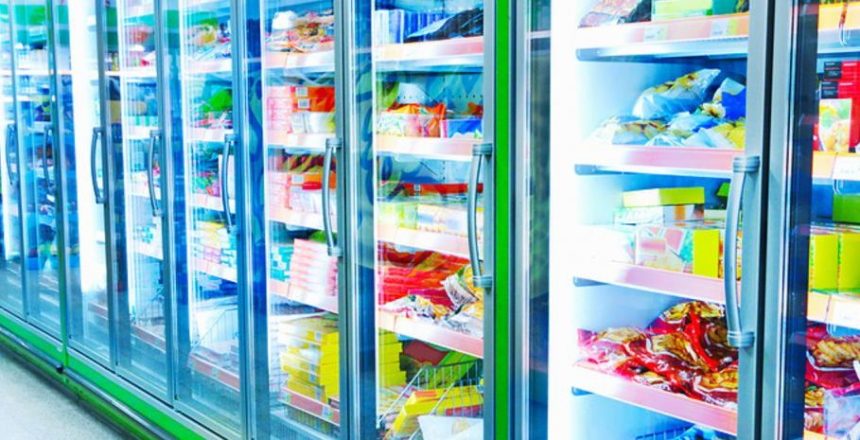Refrigeration condensing units play a critical role in commercial refrigeration systems. It removes heat from the system’s evaporator. Thecondensing unit consists of a compressor, condenser, and fan, which work together to compress and circulate refrigerant to remove heat from the system.
The condensing unit is responsible for maintaining the correct temperature of the refrigerated space, making it a critical component for businesses that rely on refrigeration, such as supermarkets, restaurants, and food processing plants. Understanding what a condensing unit does and how it works is essential for selecting the right unit for your commercial refrigeration needs.
If you are in the market for a new unit or need to replace an existing one, there are several factors to consider to ensure that you choose the right condensing unit for your needs. PartsFe offers the True 884939 condensing unit for commercial refrigeration, which is known for its high-quality and reliable performance.
Different Types of Refrigeration Condensing Units and Their Uses
Condensing units come in different types, each suited for specific applications and cooling requirements. They are:
Air-Cooled Condensing Units
Air-cooled condensing units are the most common type of condensing unit used in commercial kitchens. The refrigerant is cooled by ambient air.
Installation is simple and maintenance is minimal. Also, suitable for small to medium-sized refrigeration systems and is commonly used in refrigerators, freezers, and ice machines.
Water-Cooled Condensing Units
Water-cooled condensing units are similar to air-cooled units, but instead of using ambient air, they use water to remove heat from the refrigerant. They are more efficient than air-cooled units, but require a constant supply of water, making them suitable for large refrigeration systems with high cooling demands. Commonly used in walk-in coolers and freezers, and in large refrigeration systems in commercial kitchens.
Remote Condensing Units
Remote condensing units are designed to be installed outside of the kitchen or storage area, and the refrigerant is piped to the evaporator located inside. These units are ideal for areas with limited space or where noise levels need to be kept to a minimum. Their large refrigeration systems can be air-cooled or water-cooled. Commonly used in commercial kitchens for walk-in coolers, freezers, and display cases.
Scroll Compressor Condensing Units
Scroll compressor condensing units are becoming increasingly popular in commercial kitchens due to their quiet operation and energy efficiency. Commonly used in commercial kitchens for walk-in coolers, freezers, and display cases.
Whether you need a unit for a commercial or industrial application, we have the right solution for you. Here at PartsFe, we provide high-quality refrigeration condensing units from some of the world’s most reputable and well-known manufacturers. Our selection includes models from Heatcraft, Russell, Hoshizaki America, and True, among others. These manufacturers are known for their quality and reliability
Common Problems with Refrigeration Condensing Units and How to Fix Them
Refrigeration condensing units work to compress and condense refrigerant vapor into liquid, which can then be used to cool the interior of a refrigeration system. However, like any mechanical device, condensing units can experience problems that can lead to a breakdown in the entire refrigeration system. Here are some of the most common problems with refrigeration condensing units and how to fix them.
Dirty Condenser Coils
Dirty condenser coils can reduce the efficiency of a refrigeration condensing unit, which can lead to higher energy consumption, reduced cooling capacity, and ultimately, a shorter lifespan of the unit. Clean therefrigeration condenser coils regularly to remove any debris or dirt.
Low Refrigerant Levels
Low refrigerant levels can result in inadequate cooling and cause the compressor to overheat, which can lead to a breakdown. If you suspect that your refrigeration system is low on refrigerant, it’s important to contact a professional refrigeration technician to recharge the system with the appropriate amount of refrigerant.
Faulty Electrical Components
Faulty electrical components such as relays, contactors, or capacitors can cause the refrigeration condensing unit to malfunction or even stop working altogether. Repair or replace them with a professional refrigeration technician.
Overheating Compressor
Several factors can contribute to an overheating compressor, including low refrigerant levels, dirty condenser coils, and a malfunctioning refrigeration condenser fan. If the compressor is overheating, it’s important to shut down the refrigeration system immediately. Call a professional refrigeration technician to diagnose and repair the problem.
Frozen Evaporator Coils
Frozen evaporator coils can result in reduced cooling capacity and can cause the compressor to overheat. This problem can be caused by a dirty air filter, low refrigerant levels, or a malfunctioning evaporator fan. Contact a professional refrigeration technician to diagnose and repair the problem.
In conclusion, choosing the right condensing unit for your commercial refrigeration system is critical to ensuring its efficient and effective operation. When selecting a condensing unit, it is important to consider factors such as the type and size of the refrigeration system, the operating environment, and energy efficiency requirements. By following these guidelines, you can be confident in your choice of a condensing unit and in the performance and reliability of your commercial refrigeration system.















